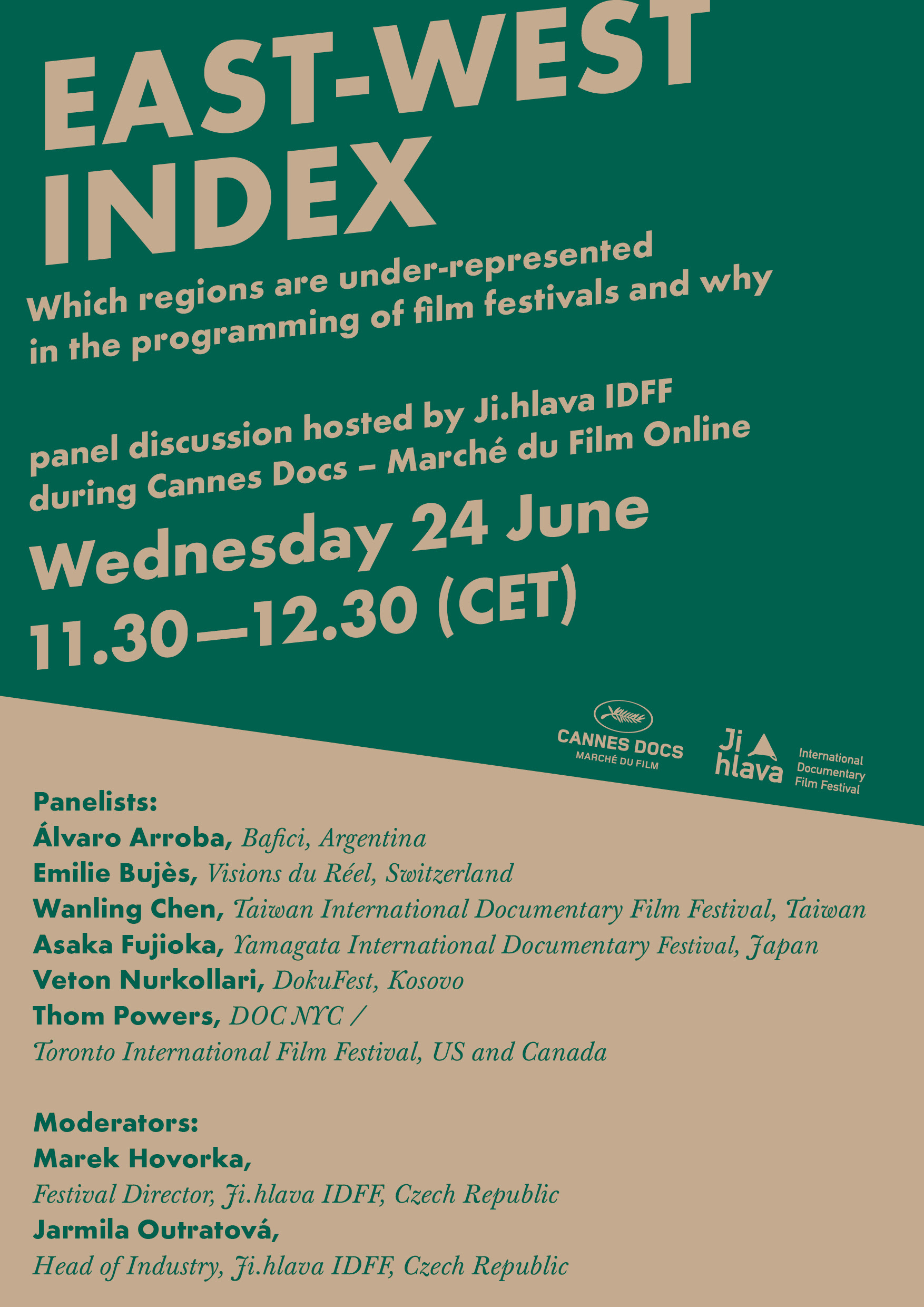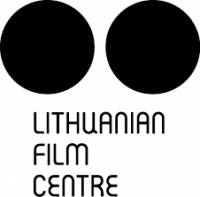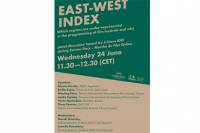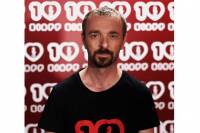FNE Podcast: Festivals in Crisis: Tudor Giurgiu Founder and President of Transilvania Film Festival
Romania 10-08-2020Tudor talks about the 19th edition of the Transilvania Film Festival, which was held this year in Cluj from 31 July to 9 August on-site despite the difficulties of the COVID pandemic. This was one of the first big film festivals in the region to take place since the pandemic and many other events have been watching to see how the event plays out.
The first production grants in 2020 were announced by the Croatian Audiovisual Centre mid-July 2020.
The 13th Fest Anča International Animation Festival will showcase the best Slovak and international animation. For this year’s focus, the organisers have chosen a very relevant theme: The Day After, as reflected in the Japanese animated classic about Hiroshima Barefoot Gen, and Jan Švankmajer’s debut Alice. And this year special attention will be paid to local animation. Fest Anča will take place 27 to 30 Aug 2020 in Žilina.
The Day After in films and elsewhere
The Day After dominates this year’s programme selection, with six sections about the main festival theme again curated by Czech film theorist Eliška Děcká. Sections include Apocalyptic Ends and New Beginnings, After-after Party or Nature's Comeback, including films by Slovak animators Dávid Štumpf (Woo-hoo!) and Matúš Vizár (Panda). "We opted to portray the confrontation of numerous global and personal apocalypses and losses, the meeting of new beginnings – through humour (often black), optimism (often misplaced), and mostly keeping calm and level-headed. An approach stemming either from a rich seam of valuable life experience or boundless naïveté,” explains Eliška Děcká in her curator’s speech.
The feature film selection also reflects the festival’s theme: Czech live-action and animated film Alice (1988), Jan Švankmajer’s feature length debut based on Alice in Wonderland, which doubles as a story of personal transformation induced by intense out-of-the-ordinary experiences. Japanese anime legend Barefoot Gen (1983) is based on the childhood memories of Keiji Nakazawa, who survived the bombing of Hiroshima. The feature film selection also includes two American films for audiences of all ages: the somehow long-overlooked Iron Giant (1999) about a little boy's encounter with an alien robot, and the Oscar-winning Rango (2011) that depicts a domestic chameleon who sets out to become a hero by saving an ecologically ravaged small desert town.
The accompanying programme and 13th Fest Anča’s communications are The Day After related. Visitors can also attend a DIY facemask workshop with the Kundy Crew creative group, a thematic reading, a Žilina civil defence bunker tour, and a performance by Czech theatre ensemble TV Estráda, portraying a quest for peace of mind, an escape to Czech countryside, contrasted by a land afflicted by climate change.
A devastated planet and its abandonment provides the concept of this year’s festival visual by graphic designer Marek Menke. He and animator Marek Jasaň created the festival spot, while Menke also designed the festival’s souvenirs (upcycled in cooperation with Textile House).
Spotlight on Slovakia
This year’s 13th edition will focus on Slovak production, welcoming one main guest: Ové Pictures will showcase its ten years’ of great animation. The studio’s founders – Veronika Obertová and Michaela Čopíková – create their own projects and participate in renowned international collaborations. They have won the national Slnko v sieti film award and international festival awards.
Local skill is strongly represented in the official festival selection – with competitive and non-competitive Slovak sections. Vanda Raýmanová and Michal Struss, Marta Prekopová, Michal Blaško, Lívia Suchá, Dávid Štumpf and Michaela Mihalyi appear in the competitive section, while Štumpf and Mihalyi present SH_T HAPPENS which premiered in Venice last year and was Sundance Film Festival nominated.
Three special sections will focus on local animation. The first section is dedicated to the award-winning Slovak series Ka-Boom! by Veronika Kocourková. The second showcases Tots by Vanda Raýmanová, who will also lead a thematic workshop for children. The third special section will present animation from FAMU – since many Slovak animators study at this renowned Prague film school.
Two exhibitions focus on Slovak animation. The festival features Dreams of Eden by young animator Kriss Sagan, and the Domased project exhibition where Czech and Slovak animators respond to the coronavirus crisis and obligation to stay home in spring 2020. “We want to use this year's spotlight to present artists who work in Slovakia, especially distinctive young creatives,” explains festival director Ivana Sujová.
A successful competition year
So many films have been submitted to the festival’s competitive sections: 1,650 from 65 countries – with the best 250 entered into the programme. Entrants include well-known animators and Anča Award winners such as Peter Millard, Max Hattler, Julia Ocker, Lena von Döhren, Milos Tomić, and several films from the prestigious MIYU Distribution. New names were also successfully selected. "Fest Anča takes pride in its programme’s diversity and uniqueness," adds Ivana.
Two special collaborations take place at Fest Anča 2020 – the European platform A.L.I.C.E. (Animation League for Increased Cooperation in Europe) which, in cooperation with the Ministry of Culture of the Slovak Republic, aims to develop and support animation. A special film section from participating countries will be screened. The second is with the Polish O!PLA animation festival that will present its 8th year’s winners to Slovak viewers at Fest Anča.
Concerts, parties, and a mini conference
Concerts, parties, workshops, discussions, and the beloved Pecha Kucha Ancha will also accompany the animated films competition and industry programme for film professionals.
The programme’s non-film section includes live performances by three-member ensemble Isobutane, Trnava rapper Fvck_Kvlt, and musician Dominik Novák’s (famous for the Blackwood Incident) new project Katov Syn(th). DJ sets will feature Fest Anča’s perennial star Stroon, DJ Tea Tralna, Bratislava's FLÄSH DJs, and rising domestic techno scene star Kristie Kardio.
Fest Anča and Sensorium new media festival’s (rolling out from Bratislava to other cities in 2020) special collaboration will deliver a one-day mini conference about art, design, science, and tech to Žilina. The main New Sensibility conference guests are new media studio OUCHHH (known for interdisciplinary expertise that pushes the boundaries of art by examining intersections between architecture, art, science, and AI), and Slovak illustrator Ivana Palečková (creator of Fest Anča visual identities).
Fest Anča International Animation Festival – held at Žilina’s New Synagogue and Stanica Žilina-Záriečie cultural hubs – is the only Slovak multimedia festival that focuses on animated films for adult audiences. This popular annual festival presents contemporary progressive animated films and classic gems of the genre – by so doing it aims to increase awareness of animated film as an art form and educate audiences on the diverse forms of animation.
Pre-sale of festival passes now! Act fast – they’re selling like hot cakes!
Fest Anča 2020 International Animation Festival is financially supported by the Slovak Audiovisual Fund and LITA Fund. Supported using public funds by the Slovak Arts Council. The festival is held under the auspices of the Mayor of Žilina, Mr Peter Fiabáne.
Further info at:
festanca.sk
facebook.com/festanca
Fest Anča 2020 guests and jury members
twitter.com/festanca
www.instagram.com/fest_anca
vimeo.com/festanca
fotografie z 12. ročníka
Any questions? Contact us at This email address is being protected from spambots. You need JavaScript enabled to view it..
Lithuanian Film Centre Announced Production and Development Grants for 2020 2nd Session
Press releases 22-07-2020The Lithuanian Film Centre has distributed €2 515 685 at its second session of financing for 2020. In all, 59 film projects received funding for production and development.
The government has allocated €1 861 695 for the production of 31 films, including 3 feature films, 5 documentaries, 14 shorts and 5 minority co-productions.
Among the projects that received production grants are 14 shorts: 7 fiction films, 5 documentaries, 2 animated and 2 interactive films.
The grant of €230 100 will be split among 5 minority co-production projects: 2 feature films, 2 documentaries and 1 animated film.
The Lithuanian Film Centre has also allotted 28 development grants totalling €653 990. This funding for film development went to 6 features, 6 documentaries and 11 animated films, while 5 projects received support for script development.
To summarise the results of the two funding sessions, organised by the Lithuanian Film Centre, for film production and development this year, 107 film projects received government support totalling €5 196 781.
PRODUCTION GRANTS CHART:
|
PROJECT |
DIRECTOR |
PRODUCTION COMPANY |
AMOUNT OF GRANT, € |
ADDITIONAL INFORMATION |
|
Trys auksakasio sapnai |
Mantas Kvedaravičius |
VŠĮ "Extimacy Films" |
375 000,00 |
Feature |
|
Poetas |
Vytautas V. Landsbergis, Giedrius Tamoševičius |
VšĮ "A propos studija" |
475 000,00 |
Feature |
|
Įstrigę Lietuvoje |
Vytautas Tinteris |
Vytautas Tinteris |
19 675,00 |
Feature |
|
Automobilių stovėjimo aikštelė |
Marija Jorė Janavičiūtė |
VšĮ "Nesamonė" |
15 000,00 |
Short Feature |
|
Sekretas |
Ričardas Matačius |
VšĮ "Incubus films" |
40 000,00 |
Short Feature |
|
Techno, mama |
Saulius Baradinskas |
MB "Viktorijos filmai" |
35 000,00 |
Short Feature |
|
Motinos |
Birutė Kapustinskaitė |
UAB "Artbox" |
15 000,00 |
Short Feature |
|
Pasakyk, kad myli |
Elena Rožukaitė |
UAB "Tremora" |
14 986,00 |
Short Feature |
|
Auklė |
Artūras Dvinelis |
VšĮ "Filmai LT" |
14 990,00 |
Short Feature |
|
Pelkė |
Urtė Sabutytė |
UAB "Baltic Productions" |
15 000,00 |
Short Feature |
|
Robotas ir peteliškė |
Gailė Garnelytė |
Laura Švarlienė |
14 490,00 |
Short Documentary |
|
Nešėm, kol pavargom |
Vytautas Gradeckas |
Laura Švarlienė |
14 950,00 |
Short Documentary |
|
Miego liga |
Mantas Kvedaravičius |
VšĮ "Extimacy Films" |
120 000,00 |
Documentary |
|
Tomas. Vilties formos |
Saimir Bajo |
VšĮ "Ketvirta versija" |
70 000,00 |
Documentary |
|
Vakar/Yesterday |
Audrius Juzėnas |
VšĮ "Didžiųjų motinų studija" |
70 000,00 |
Documentary |
|
Vilutis |
Vytautas V. Landsbergis |
VšĮ "A Propos studija" |
35 000,00 |
Documentary |
|
Kernagis |
Andrius Lekavičius |
VšĮ "360 laipsnių filmai" |
37 000,00 |
Documentary |
|
Plaukikas |
Gintautas Beržinskas |
UAB "Ultra Nominum" |
30 000,00 |
Short Documentary |
|
Buona sera |
Justė Michailinaitė |
VšĮ "Artbox laisvalaikio klubas" |
14 900,00 |
Short Documentary |
|
Atminties kilometrai |
Rimas Bružas |
Rimas Bružas |
11 054,00 |
Short Documentary |
|
Meilė korona viruso metu |
Virginija Vareikytė, Maximilien Dejoie |
VšĮ "Just a moment" |
20 000,00 |
TV |
|
Bėgliai |
Andrius Bartkus |
UAB "Be tabu“ ir ko |
19 850,00 |
TV |
|
Jūratė ir Kastytis |
Gediminas Šiaulys |
UAB "Kitchen Department" |
36 000,00 |
Animation |
|
Katu katu katinai |
Giedrė Narušytė Boots |
UAB "Era film" |
20 000,00 |
Animation |
|
Purga |
Antanas Skučas, Gintarė Valevičiūtė-Brazauskienė |
MB "Tylus kinas" |
53 200,00 |
Interactive |
|
276 žingsniai iki Europos |
Kostas Radlinskas, Dalia Cibauskaitė |
VšĮ "Eik art" |
45 000,00 |
Interactive |
|
Pietų miegas |
Nils Skapans |
VšĮ "Moonmakers" |
23 100,00 |
Minority Co-production |
|
Sausis |
Viesturs Kairišs |
UAB "Artbox" |
60 000,00 |
Minority Co-production |
|
Trys |
Juanjo Giminez |
VšĮ "Čiobreliai" |
43 000,00 |
Minority Co-production |
|
Ayena |
Siddhant Sarin |
UAB "Ultra Nominum“ |
27 000,00 |
Minority Co-production |
|
Natūrali naikinimo istorija |
Sergejus Loznica |
VšĮ "Uljana Kim ir ko“ |
77 000,00 |
Minority Co-production |
Ji.hlava IDFF East West Index: Which regions are under-represented at film festivals and why?
FilmNewEurope TV 26-06-2020Click HERE to listen to the debate.





























